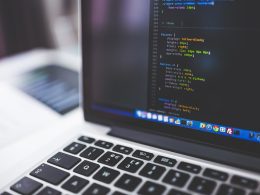1. Focus on a specific language
The first step in mastering programming is to focus on a specific programming language. It can be tempting to learn multiple languages at once, but this can lead to confusion and slow down your progress. Choose a language that’s in demand and aligns with your career goals. For instance, if you want to develop web applications, then you can choose languages like JavaScript, HTML, and CSS. On the other hand, if you aim to develop games or mobile apps, you can go for languages like Python, Java, or Swift.
2. Build a solid foundation
Before diving into complex projects, it’s essential to build a strong foundation. Learn the basics of programming concepts such as variables, data types, looping, conditional statements, and functions. Once you have a solid foundation, it’ll be easy to build upon and understand more complex topics.
3. Practice, practice, practice
Programming is a skill that requires consistent practice to master. There’s no shortcut to becoming a skilled programmer. Practice regularly by working on small projects or coding challenges. It helps you to develop your problem-solving skills, improve your coding speed, and become more proficient in the programming language you’re learning.
4. Collaborate with others
Collaboration is crucial in programming. Working with others can help you learn new techniques, approaches, and perspectives. Join coding communities, attend coding events, and participate in code reviews to collaborate with other developers.
5. Use online resources
Thanks to the internet, there are numerous online resources available to help you on your programming journey. YouTube, Codecademy, Udemy, Coursera, and many other platforms offer online courses and tutorials that can help you learn programming at your own pace. You can also follow programming blogs, attend webinars, join forums, and read programming books to expand your knowledge.
6. Be patient
Mastering programming isn’t an overnight process. It takes time, patience, and dedication. Don’t get discouraged by challenges and failures. Instead, focus on learning from your mistakes and keep practicing. Remember, the more you practice, the better you get.
In conclusion, programming is a lucrative and exciting field that requires consistent learning and practice. Follow these tips and tricks, and you’ll be well on your way to mastering programming. Remember to choose a language, build a strong foundation, practice consistently, collaborate with others, use online resources, and stay patient and persistent. Happy coding!









